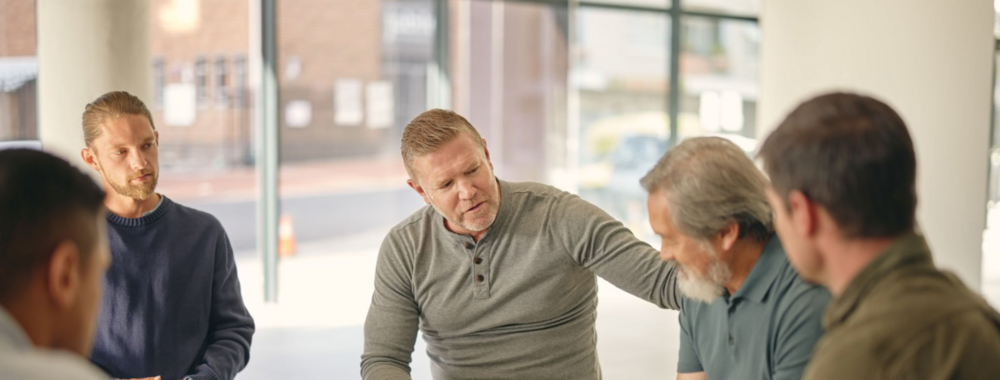[vc_row][vc_column][vc_column_text]Often times, people think of recovery synonymously with twelve-step programs. While there are a variety of different approaches to recovery, the twelve-step program has certainly held its place as a staple in addiction recovery. Given the popularity and notoriety of the twelve-step program, it seems appropriate to do a brief review of the program’s philosophy and current applications.
The twelve-step program is most commonly associated with Alcoholics Anonymous. However, other more targeted twelve-step programs have emerged over the years to include other drug addictions (i.e. Narcotics Anonymous, Cocaine Anonymous, Crystal Meth Anonymous, etc.) and behavioral addictions (Gamblers Anonymous, Food Addicts Anonymous, Co-Dependents Anonymous, etc.). Regardless of the substance or problem behavior in focus, all twelve-step programs rely on adaptations to the original twelve steps developed for Alcoholics Anonymous, which was the first twelve-step program. Those twelve steps may be boiled down to the following ideas:
- An honest admission of powerlessness over the substance or problem behavior
- A belief that a higher power can assist in recovery
- A recognition that you must include others in your recovery
- An inventory of current problems and how substance use or the problem behavior affected them
- An admission of wrongdoings to their higher power and another person
- An acceptance of flaws in personal character
- The humility to ask a higher power to assist in recovery
- Constructing a list of those you have harmed through your substance use or problem behavior
- Making amends to those you have harmed
- Continually taking an inventory of current problems and wrongdoings, and being willing to admit when wrong
- Fostering a sense of awareness through connection and engagement with your higher power
- Engage in service activities to assist others in recovery and daily life
The twelve steps listed above may be broken down into three domains: physical, mental, and spiritual. These three dimensions were intentionally developed and included in the twelve-steps to be a reflection of the physical, mental, and spiritual aspects of the human experience. The philosophy underwriting this design is that the problems that arise in addiction present themselves in physical, mental, and spiritual domains. Thus, the path to recovery must include these same elements.
Twelve-step programs continue to be popular due to the success that many individuals have experienced in their recovery journeys. Additionally, many individuals enjoy the sense of community at meetings, the availability of a concrete plan towards recovery, and the accessibility (twelve-step groups operate all over the world free of charge), among other reasons. Further, many of these meetings are now offered virtually over Zoom. If you are even the slightest bit curious about a twelve-step program, I would encourage you to attend an open meeting. You never know what the tide will bring.
By Jonathan Fricke, MA[/vc_column_text][/vc_column][/vc_row]


























